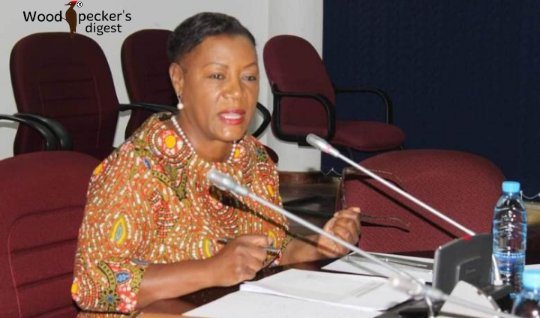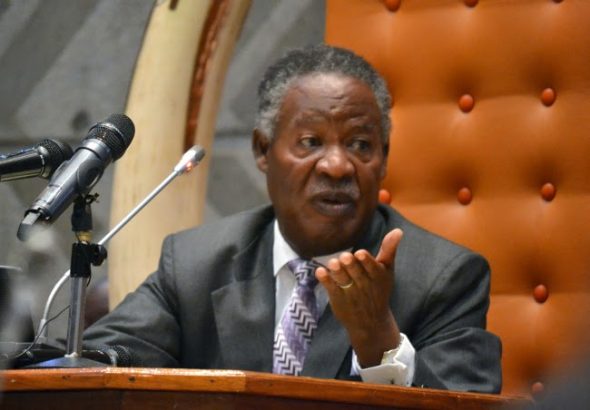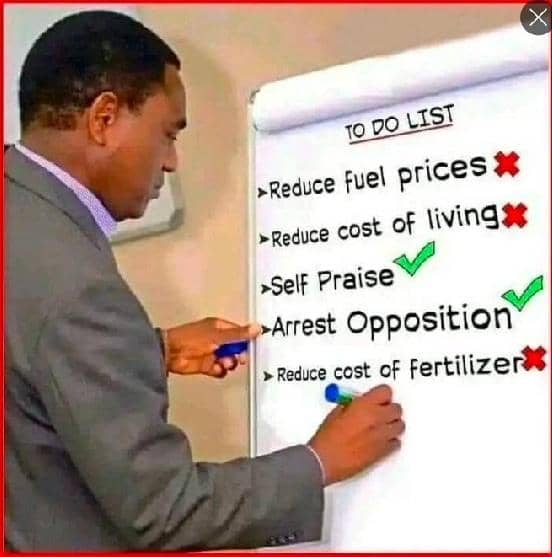
The New Heritage Party has accepted the invitation to work with the former President to address the issues that we are faced with, for the sake of the nation's survival!
“As NHP, we are of the view that prudence dictates that we treat Vedanta as a stop-gap option as we look for a longer lasting solution for KCM!” – Kateka.
By Mpandashalo Mwewa | Chief Editor.
Lusaka, Sept. 11 – The late Margaret Thatcher once said, “If you want something said, ask a man; if you want something done, ask a woman.” If you were to put the New Heritage Party president, Ms. Chishala Kateka, next to President Hakainde Hichilema on the KCM issue, Ms. Thatcher would be crowned a prophetess, posthumously.
Also Read: The decision to re-engage Vedanta reeks of corruption!
There’s an urgent need to realise that we should avoid thinking about making women fit our filthy Zambian way of doing politics. We should be thinking about making the Zambian politics fit our women’s way of doing business, the way they manage our homes given the needed resources.
I don’t know about you, but my understanding is that women are the real architects of any society. This, to a great extent, is because unlike us men, strong women don’t have ‘attitudes’, they have standards.
With Kamala Harris, leading the free world as the first female Vice President of the United States, it’s safe to say that women are breaking barriers and making extraordinary strides. Despite existing gender inequities being perpetrated by irresponsible decisions such as the rewarding of people like Chellah Tukuta, a perennial women abuser, women are consistently forging ahead and shattering glass ceilings.
Allow me, therefore, to present to you how the NHP president, Madam Chishala Kateka, has understood President Hichilema’s best effort to resolve the KCM issue…
◾The re-engagement of Vedanta For KCM – Is this a beneficial decision for Zambia?
By Chishala Kateka | NHP president.
▪️ The Announcement
The long awaited official announcement on 5th September 2023, regarding the re-engagement of Vedanta as the investor that will continue to mine Konkola Copper Mines (KCM), has finally been made.
Let us put aside the political consideration of what the UPND promised prior to their election but rather ask ourselves the question – ‘Is this decision to re-engage Vedanta, for KCM and under the conditions agreed, beneficial for Zambia?’ – for at the end of the day, this is what ultimately matters.
We at New Heritage Party (NHP) believe that certain questions need to be asked and answered. We find it interesting that no questions were permitted to be asked at the announcement of the decision to give KCM back to Vedanta.
This is always a red flag, indicating that there are questions that need to be asked which the authorities are not willing to or are incapable of answering and therefore would like to avoid the public scrutiny. This is not a good sign and must be kept in mind.
▪️ We do take note of the following:
With the current economic/political environment in the country, it would seem that the UPND did not have an option but to go back to Vedanta as finding an alternative to that company in the short term would most likely have proved challenging.
▪️ The Background
We must take into account that:
1. Vedanta as the majority shareholder of KCM had not run the company in the most optimal manner from the time that they acquired it;
2. Vedanta had missed their investment commitments as per initial agreement; and
3. The PF administration was right in their intention to address the above two issues, albeit, the process that was followed in doing this was flawed – ending up without room to find a workable solution.
We are aware that an audit was conducted by the Government, and whose findings formed the basis for the appointment of the Liquidator. We would like to ask Government what state the Vedanta led KCM was in, prior to the appointment of the Liquidator.
I. Is it true that for years, KCM had been facing operational challenges which resulted into a sharp decline in mineral production and failure to pay employees, contractors and suppliers? If this is not so, what was the actual position at KCM?
II. Were KCM operations characterised by high indebtedness with the threat of insolvency; total liabilities in excess of US$1.567 billion, exceeding its assets by US$123m, making it difficult for it to meet its financial obligations such as paying workers, suppliers and contractors among others? If this was not the case, what was the correct position?
III. Did KCM default on a Standard Bank loan which it acquired to the tune of US$700m? If this is incorrect, kindly share the correct position.
IV. Did Vedanta fail to comply with its commitment to bring in Foreign Direct Investment (FDI) of an injection of US$397m into KCM and was diverting funds meant for operations. Should this not be the case, kindly clarify.
V. Did Vedanta fail to develop New Ore Sources?
VI. Did Vedanta commission Konkola Deep Mining Project (KDMP) it committed to do?
VII. Was Vedanta sub-contracting all mining activities at KCM resulting in high cost of doing business?
VIII. Did KCM purchase or maintain its own equipment or was it using its sub-contractors’ equipment such that as a consequent, any pull-out of any contractor meant suspension of mining activities in respective areas, resulting in having an impacted on the company negatively?
IX. Did Vedanta produce a viable strategic plan to improve operations at KCM?
X. Did Vedanta pledge to raise fresh liquidity amounting to US$250m to meet operational costs and settle overdue creditors? Did Vedanta also commit to provide US$400m as parent guarantee towards an outstanding loan that KCM had on its books. Were these pledges honoured?.
The responses to the above questions should cause the Government and the people of Zambia to tread very cautiously and be judicious with regard to the way forward.
Is this decision to re-engage Vedanta, for KCM and under the conditions agreed, beneficial for Zambia?
Also Read: We don’t have a capable leader to mobilise national wealth.
In order for us to determine whether this is a good deal for the country, as NHP, we raise the following questions to, and which require a response from, the Government’s Negotiating Team:
• What was the extent of Vedanta’s fulfilment of the initial contract agreement?
✓ Can this be made available to the Zambian public?
✓ How has Vedanta addressed or intends to address its previous shortcomings?
• Considering Vedanta Groups current financial problems which have deepened and is in the public domain, what are we placing reliance on to assure ourselves that this time, the Shareholder will not default on its commitments? What guardrails have we put in place to ring-fence and safe guard against any severe negative consequences for KCM as a result of this situation?
• Has adequate information been disclosed to Zambian citizens to be sufficiently informed so as to understand what has been negotiated on behalf of the nation, let alone enable Zambians to make a judgement whether this will benefit Zambia and Zambians?
• What are the Terms and Conditions as well as the milestones in the new agreement/commitments under which Government has handed back KCM to Vedanta? While Vedanta has made clear its Terms and Conditions, the Government on the other hand has been mute, save to say that they are talking with Vedanta.
• What measures have been effected to track and to monitor Vedanta’s compliance to new terms, and what sanctions will be effected for non-compliance.
• Is there a clear Exit Clause in the Terms of Agreement?
• What penalties have been imbedded in the agreement for non-compliance to the terms of the agreement?
As we enter into this agreement, Zambians need to also ask; What are we giving up as a nation? If KCM is so deteriorated, why has Vedanta fought so hard for it? Is it not for the minerals yet to be exploited?
ZCCM-IH in their statement quantified the quantum of the unexploited minerals as follows:
✓ KCM is sitting on 250 million tonnes of copper reserves.
✓ If this is contained copper in ore, then its current value is $2 trillion dollars
✓ If it is copper ore at say 4% then the value would be about $80 billion (over a 25-year lifespan, this would amount to $3.2bn per annum on average).
Also Read: Zambia is not benefitting from its mineral resources.
While we gratefully give others to exploit our wealth, we need to keep these figures in mind but then again, we have told ourselves that we are not capable of handling our mining sector.
▪️ Conclusion
NHP notes that with very little information available from the authorities, it becomes very difficult to determine whether this decision will be beneficial for the country.
The historical experience with Vedanta as well as their current financial state is a great cause of concern and would suggest that it will be just a matter of time before the Shareholder again starts to cut corners and fail to meet its obligations.
Recognising that the Government has made the decision that it has due to socio economic pressures, NHP would have put some guardrails in place to protect the interest of Zambia and Zambians, as follows:
• Demand that all conditions that were not met in the earlier agreement, are made good, before allowing Vedanta to take possession of the mine;
• Appoint a Monitoring and Evaluation Team to monitor the operations of KCM to ensure that the company is operating and generally adhering to the agreement
• Insert in the agreement, some very punitive measures, with minimal compensation if any, for the abrogating of conditionalities;
• Insert a Penalty Clauses within the Agreement for abrogation;
• Require for the settling of all pledges made, upfront; and
• Sign for a shorter tenor than 25 years.
This deal, as it currently stands, is only as good (or as bad) as the terms that Government and Vedanta have agreed upon. As NHP, we are of the view that prudence dictates that we treat Vedanta as a step-gap options as we look for a longer lasting solution for KCM.
If you share our beliefs and principles that development must be driven by Zambians through policies that seek to systematically monetise our natural resources, please remember to follow Woodpecker’s Digest! We need a radical change of mindset to develop Zambia.
©2023 Woodpecker’s Digest.
Putting news into perspective









